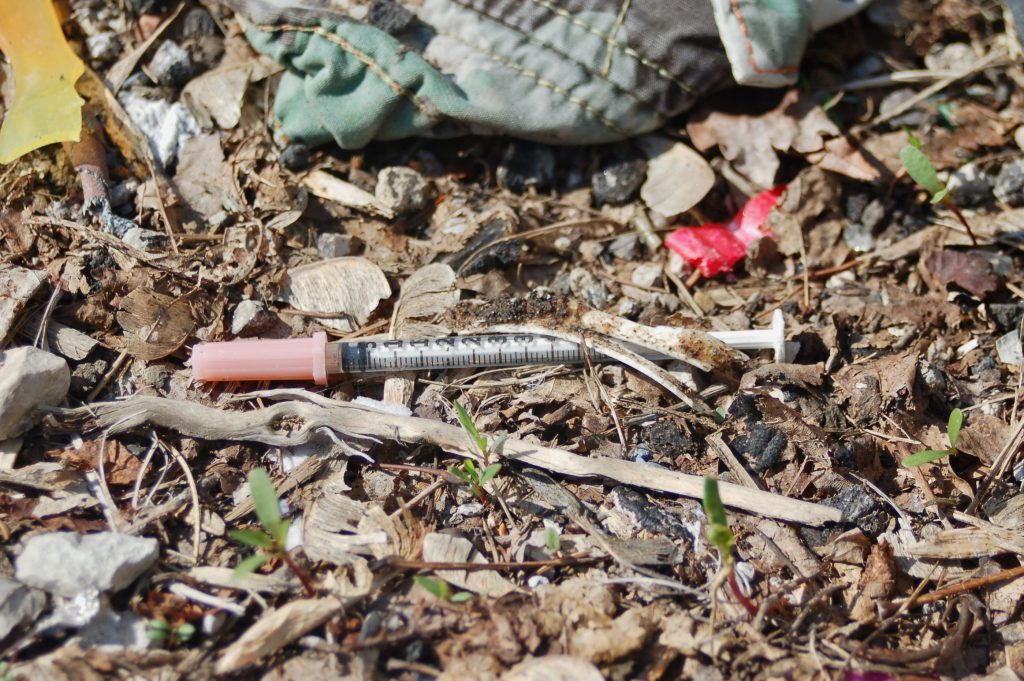War on Drugs Is Devastating City
So why won’t we talk about it? Why aren’t city-county officials confronting it?
I have been critical of both the Milwaukee City-County Heroin, Opioid and Cocaine Task Force and the Office of Violence Prevention’s Blueprint for Peace for failing to even mention the War on Drugs and the myriad ways it is traumatizing our community.
The harmful effects of drug prohibition have accrued over three generations in Milwaukee since it was ramped up by Richard Nixon, who intentionally targeted minority populations and the anti-war movement. The cumulative damage may take generations to heal, and we should start the process by ending the War on Drugs—ALL DRUGS.
Here is a partial inventory of harms that drug prohibition is causing the Milwaukee community:
- There were 13 (15.1%) drug-related homicides in 2014, 25 (17.2%) in 2015, and 15 (10.8%) in 2016.
- There were 60 (10.3%) drug-related shootings in 2014, 68 (10.7%) in 2015, and 36 (6.4) in 2016.
I think it is fair to assume that a percentage of these statistics also is connected to drug prohibition. What is the impact of all this trauma-inducing violence on the survivors, friends, family and witnesses?
Undoubtedly, much of the other crime and violence in Milwaukee is related to drug deals gone bad or attempts to get money to buy drugs. Consider the car thefts and reckless driving that often accompanies mobile drug markets.
The War on Drugs has led directly to the introduction of fentanyl into the illicit drug supply and it now accounts for over 59% of the opioid overdoses.
Pregnant women who are using controlled substances do not get the medical care they need before and after giving birth because of fear of losing their child and being incarcerated. This results in a higher rate of infant mortality, especially among black and brown babies.
People who cannot get a safe dose of the substance they need to “get well” from a legally regulated market are exploited by human traffickers.
People being incarcerated for drug crimes may result in family members being evicted or foreclosed on.
Even a short time in jail can cause a person to lose his or her job, possessions and housing.
Ex-felons have the odds stack against them in a myriad of ways, especially in the areas of employment, housing and education.
Drug laws have been disproportionately enforced on people of color for three generations now. Does this foster respect for the law? What is the cost of trust lost?
A significant percentage of the time and resources of the Milwaukee Police Department is spent enforcing the drug laws or responding to the violence and crime that accompanies drug prohibition.
The “Broken Windows” strategy of policing, which is a weapon in the War on Drugs, has resulted here in the ACLU Stop and Frisk lawsuit. This has not only cost the city millions of dollars, it has eroded the trust between the people and the MPD.
The hypocrisy of criminally stigmatizing people who self-medicate with arbitrarily controlled substances, while we are awash in prescription drugs, alcohol and tobacco (that kill far more people), deadens the conscience and erases the distinction between right and wrong.
We must recognize the harms that drug prohibition causes and acknowledge that there is no quick fix for a problem that has festered for three generations. Let’s talk about it.
Paul Mozina is a retired IT professional and an activist who has opposed the War on Drugs since the early 1980s.
This story was originally published by Milwaukee Neighborhood News Service, where you can find other stories reporting on eighteen city neighborhoods in Milwaukee.
Op-Ed
-
Wisconsin Candidates Decry Money in Politics, Plan to Raise Tons of It
 Dec 15th, 2025 by Ruth Conniff
Dec 15th, 2025 by Ruth Conniff
-
Trump Left Contraceptives to Rot; Women Pay the Price
 Dec 8th, 2025 by Dr. Shefaali Sharma
Dec 8th, 2025 by Dr. Shefaali Sharma
-
Why the Common Council’s Amended Budget is Good Policy for Milwaukee
 Nov 20th, 2025 by Alds. Marina Dimitrijevic and Russell W. Stamper, II
Nov 20th, 2025 by Alds. Marina Dimitrijevic and Russell W. Stamper, II






















